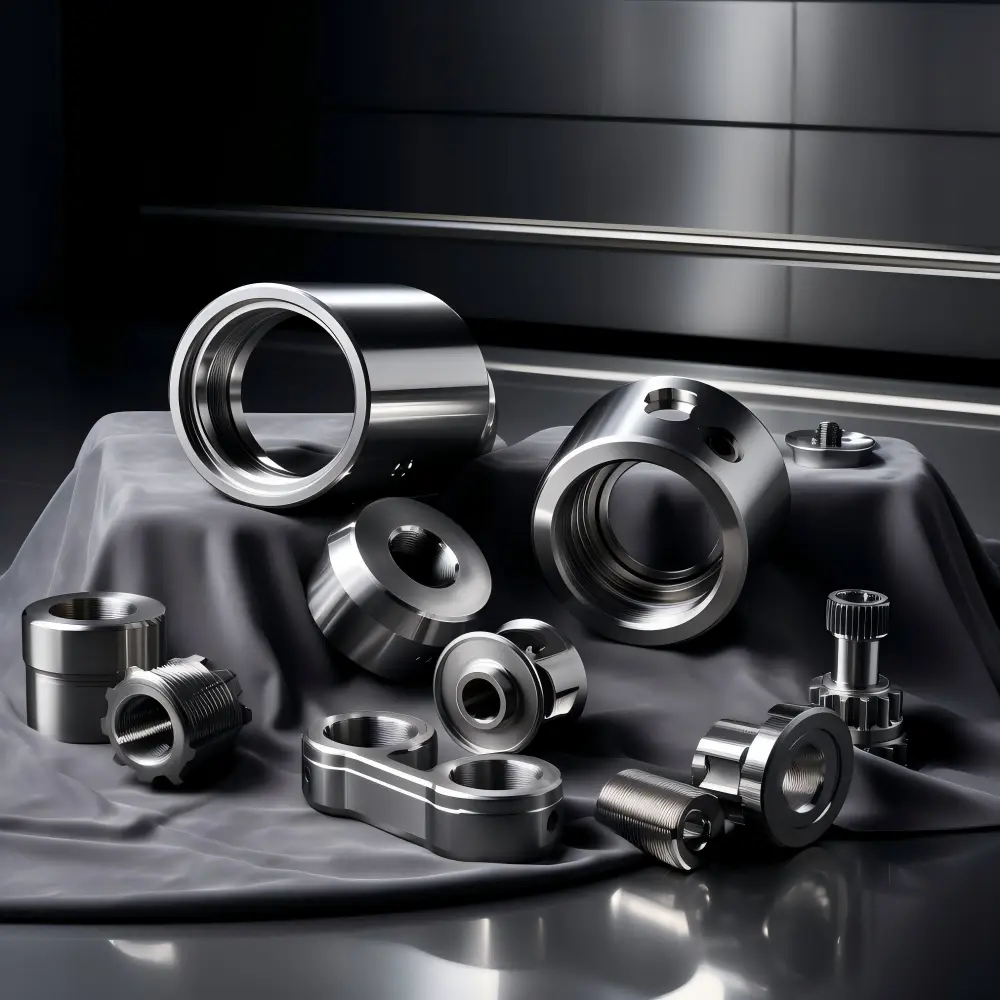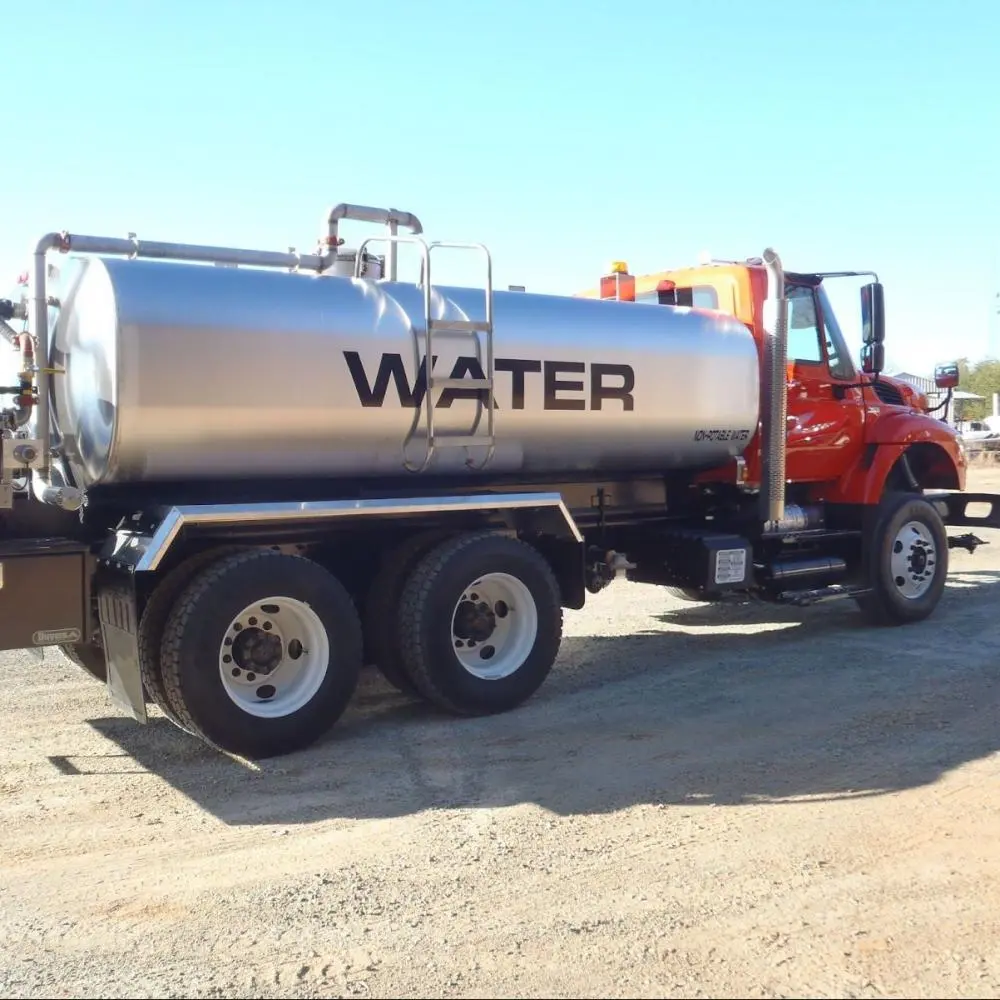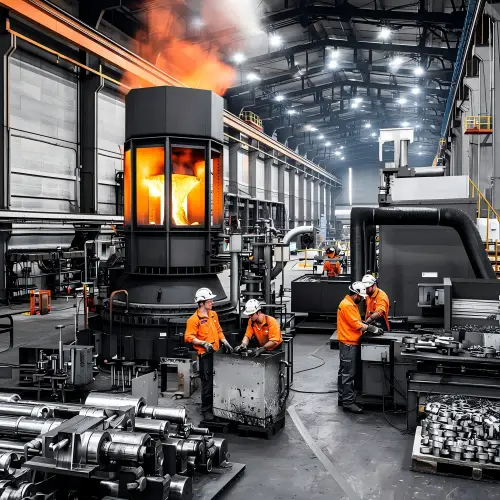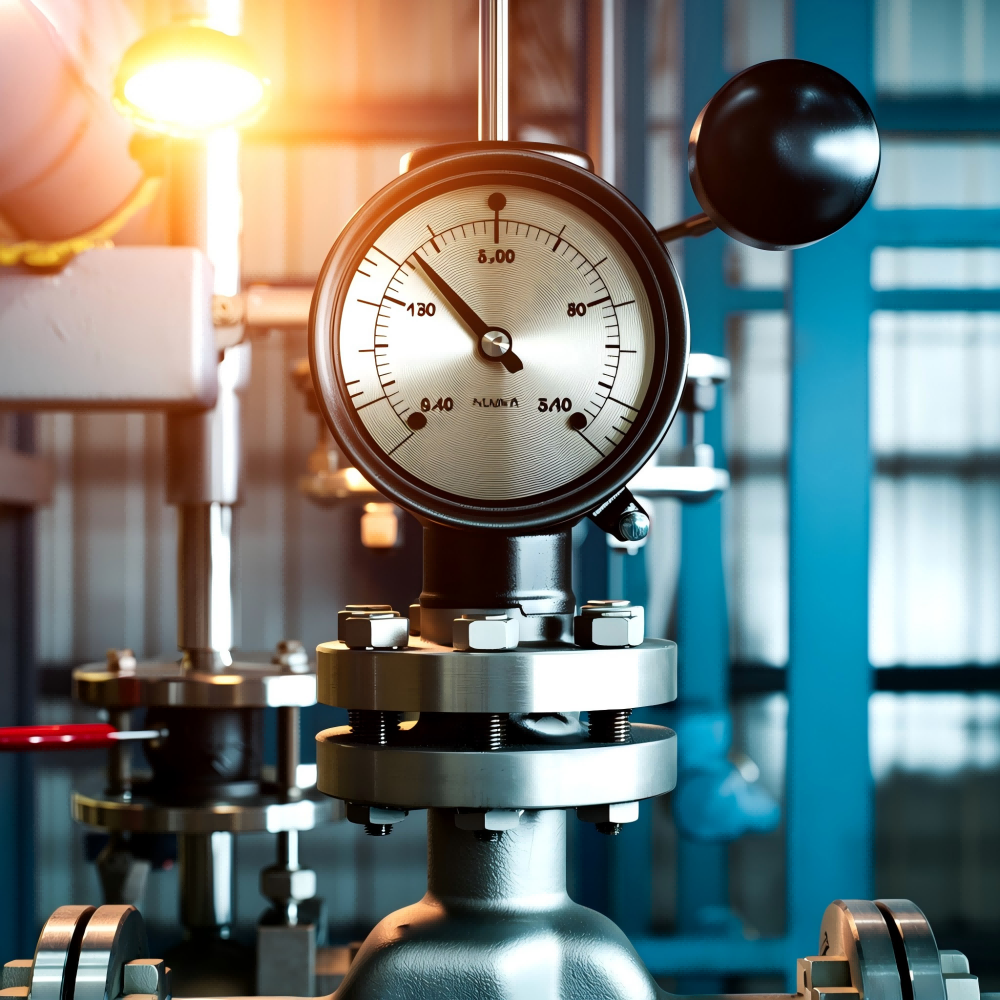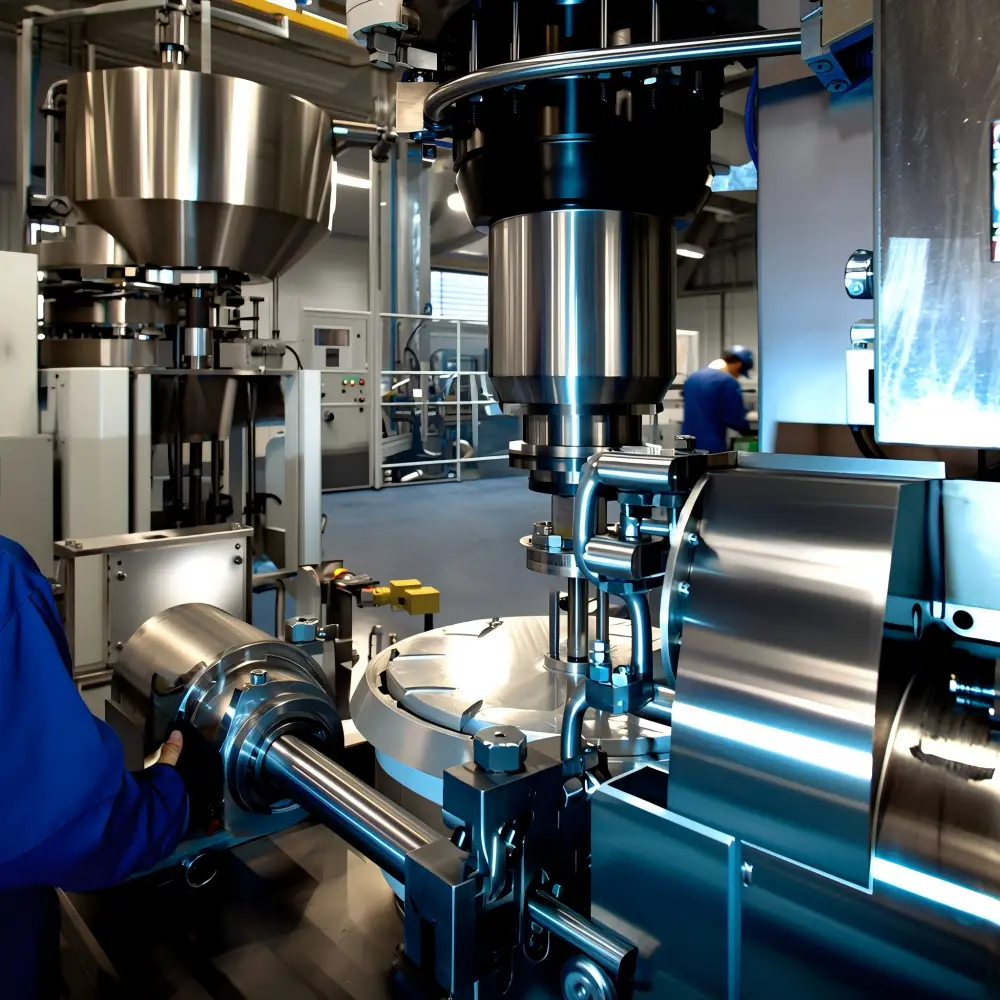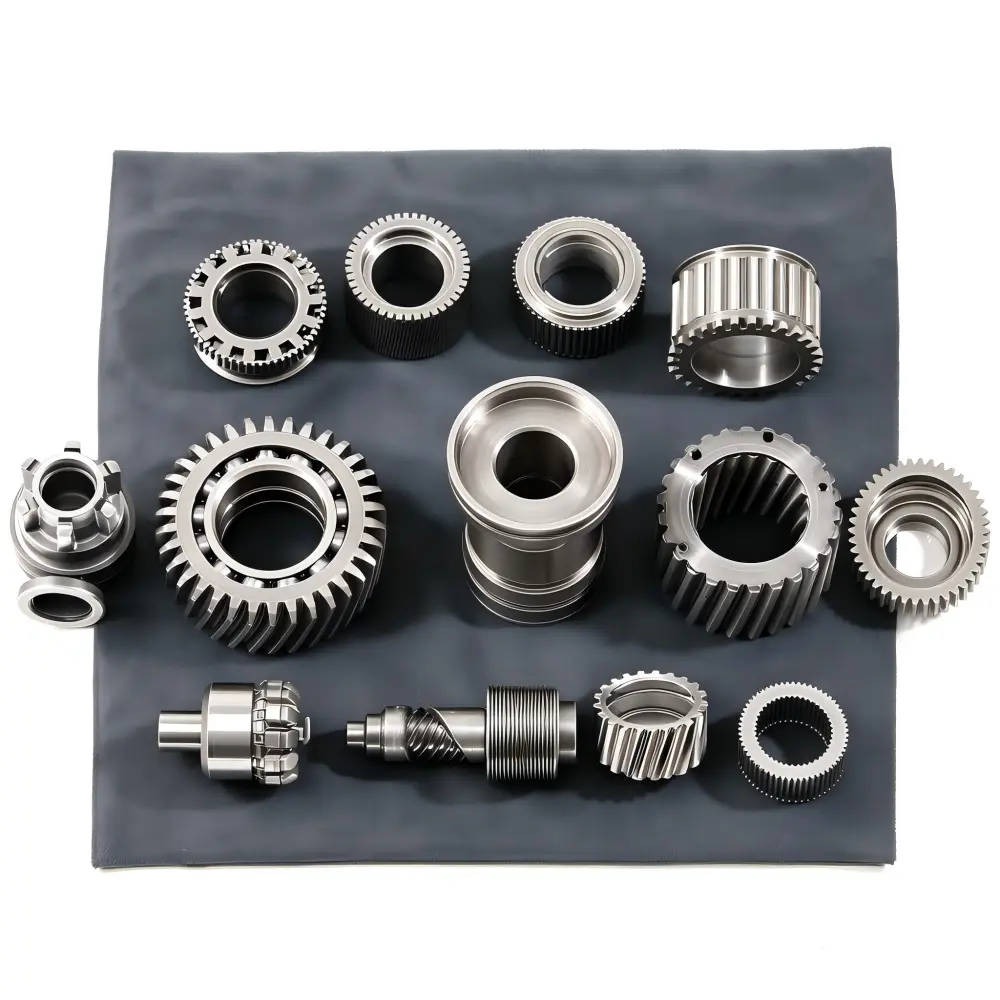Discover Precision Castings for Packaging Efficiency
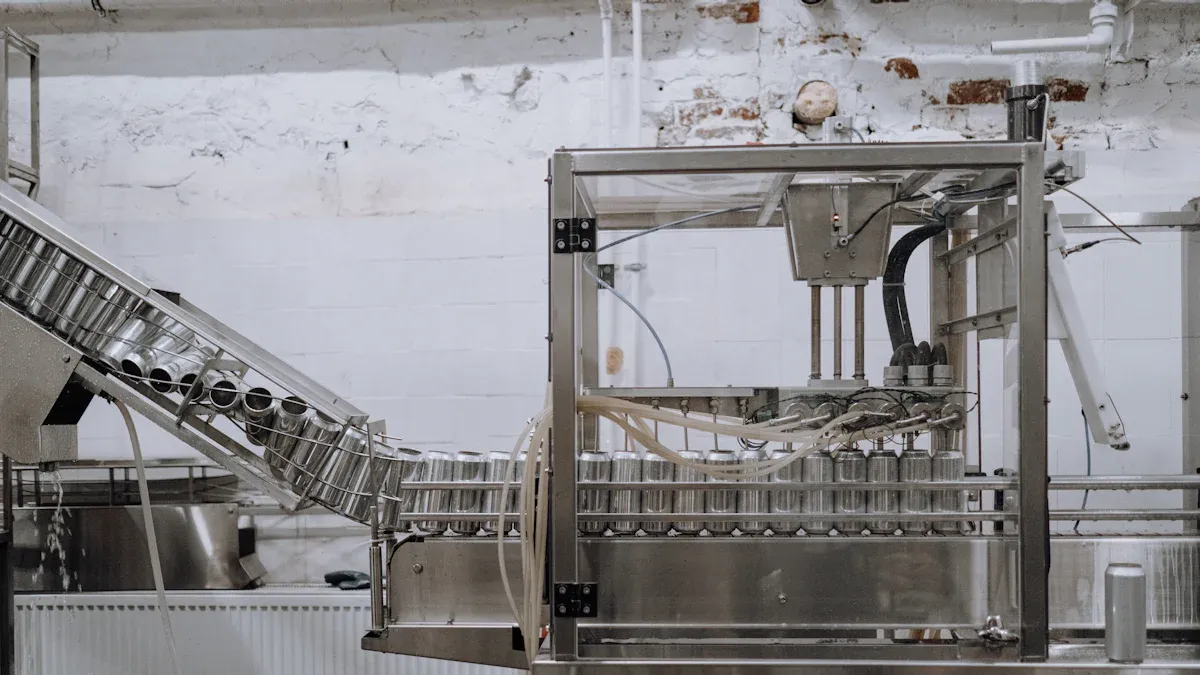
Precision Castings used in packaging machines play a crucial role in enhancing efficiency and reliability. These components, such asstainless steel precision castings, help minimize downtime and ensure seamless operations. Many industries, including dairy packaging, have experienced notable success by utilizing lost wax precision casting. This method has optimized machine performance, delivering consistent results and boosting overall productivity.
Key Takeaways
- Precision castings make packaging machines last longer and work better. This reduces breakdowns and saves money on new parts.
- They help machines work more accurately, creating better products and less waste during packaging.
- Spending on precision castings can cut repair costs. This helps businesses use their money wisely and get more work done.
Benefits of Precision Castings Used in Packaging Machines
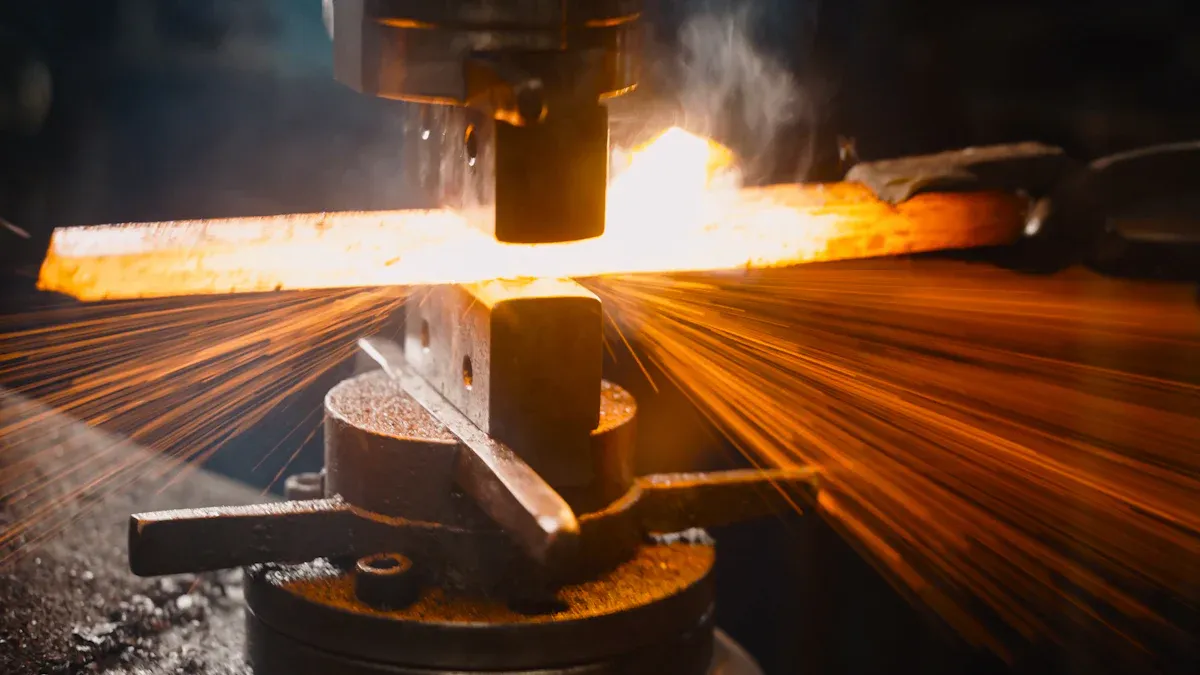
Enhanced Durability and Longevity
Precision castings used in packaging machines are built to last. These components are crafted from robust materials like stainless steel and aluminum alloys, which resist wear and tear even under demanding conditions. Their durability ensures that machines can handle high-speed operations and heavy workloads without frequent breakdowns. This longevity reduces the need for constant part replacements, saving both time and resources.
For example, in industries like food and beverage packaging, where machines operate continuously, durable precision-Cast Parts prevent interruptions. Companies can rely on these components to maintain consistent performance over extended periods. This reliability not only boosts productivity but also minimizes the environmental impact by reducing waste from discarded parts.
Tip: Investing in high-quality precision castings upfront can lead to significant long-term savings by extending the lifespan of your packaging equipment.
Improved Operational Accuracy
Precision castings used in packaging machines are designed with exact specifications, ensuring seamless integration into complex systems. This precision enhances the accuracy of operations, such as filling, sealing, and labeling. When every component fits perfectly, the risk of errors decreases, leading to smoother workflows and higher-quality output.
Take automated packaging systems as an example. These systems rely on precise movements to handle delicate products like pharmaceuticals or cosmetics. Precision-cast components ensure that each step, from product placement to sealing, is executed flawlessly. This level of accuracy not only improves product quality but also reduces waste caused by misaligned or defective packaging.
Cost Savings Through Reduced Maintenance
One of the most significant advantages of using precision castings in packaging machines is the reduction in maintenance costs. Their durability and accuracy mean fewer breakdowns and less wear on other machine parts. This translates to lower repair expenses and less downtime for maintenance.
For instance, a meat packaging company recently reported a 30% reduction in maintenance costs after switching to precision-cast parts. The company found that these components required less frequent servicing and performed consistently over time. This allowed them to allocate resources more effectively and focus on scaling their operations.
Note: Regular maintenance is still essential, but precision-cast components can significantly reduce the frequency and cost of these activities.
Real-world example: A meat packaging company reduced maintenance costs by 30% with precision-cast parts.
A meat packaging company faced recurring issues with machine breakdowns, leading to costly repairs and production delays. After consulting with a precision casting manufacturer, they decided to replace key machine components with precision-cast parts. The results were remarkable. Maintenance costs dropped by 30%, and machine uptime improved significantly. This change not only saved money but also enhanced the company's ability to meet tight production deadlines.
The company’s experience highlights the transformative impact of precision castings used in packaging machines. By investing in high-quality components, businesses can achieve greater efficiency, reliability, and cost-effectiveness.
Key Takeaway: Precision castings are a smart investment for companies looking to optimize their packaging processes and reduce operational costs.
Applications of Precision Castings in Packaging Machines
Key Components in Filling and Sealing Systems
Filling and sealing systems are at the heart of most packaging machines. These systems require components that can handle repetitive motions with precision. Precision castings play a vital role here. They ensure that parts like nozzles, sealing jaws, and filling heads operate smoothly and accurately. This level of precision is crucial for maintaining consistent product quality.
For example, in liquid packaging, the filling heads must dispense exact amounts of liquid into containers. Precision castings ensure these heads fit perfectly within the system, reducing the risk of leaks or overfills. Similarly, sealing jaws made from precision-cast materials provide uniform pressure, creating airtight seals that protect the product inside. These components not only improve efficiency but also minimize waste caused by defective packaging.
Tip: Businesses can enhance their packaging quality by choosing precision-cast components for critical systems like filling and sealing.
Precision Castings in Conveyor Mechanisms
Conveyor mechanisms are the backbone of any packaging line. They transport products from one stage to the next, ensuring a steady flow of operations. Precision castings used in packaging machine conveyor systems provide the durability and accuracy needed for smooth movement.
Key components like rollers, sprockets, and guide rails benefit from precision casting. These parts must withstand constant motion and heavy loads without deforming. Precision-cast materials, such as stainless steel, offer the strength and wear resistance required for long-term performance. Additionally, their exact dimensions ensure seamless integration with other machine parts, reducing the risk of jams or misalignments.
In high-speed packaging lines, even a minor delay can disrupt the entire process. Precision-cast conveyor components help prevent such issues, keeping operations running efficiently. This reliability is especially important in industries like food and beverage, where timely delivery is critical.
Role in Automated Packaging Systems
Automation has revolutionized the packaging industry. Automated systems rely on precision to perform tasks like sorting, filling, sealing, and labeling. Precision castings are indispensable in these systems, as they provide the accuracy and reliability needed for flawless operation.
Robotic arms, for instance, often use precision-cast joints and grippers to handle products with care. These components ensure smooth and precise movements, reducing the risk of damage to delicate items like glass bottles or pharmaceutical vials. Similarly, precision-cast gears and cams enable automated machines to maintain consistent speeds and timing, ensuring every product is packaged correctly.
By integrating precision castings, companies can maximize the efficiency of their automated systems. This not only boosts productivity but also enhances product quality, helping businesses meet customer expectations.
Real-world example: A pharmaceutical company optimized blister packaging with precision-cast sealing components.
A pharmaceutical company faced challenges with its blister packaging process. The sealing components in their machines often wore out quickly, leading to frequent downtime and inconsistent seals. After switching to precision-cast sealing components, the company saw immediate improvements. The new parts provided uniform pressure and lasted significantly longer, reducing maintenance needs.
As a result, the company achieved higher production rates and better packaging quality. This change also helped them meet strict industry standards for product safety and integrity. The success of this transition highlights the value of precision castings in optimizing packaging processes.
Key Takeaway: Precision castings are essential for enhancing the performance of filling, sealing, conveyor, and automated systems. They offer the durability and accuracy needed to meet the demands of modern packaging operations.
Materials and Manufacturing Processes for Precision Castings Used in Packaging Machines
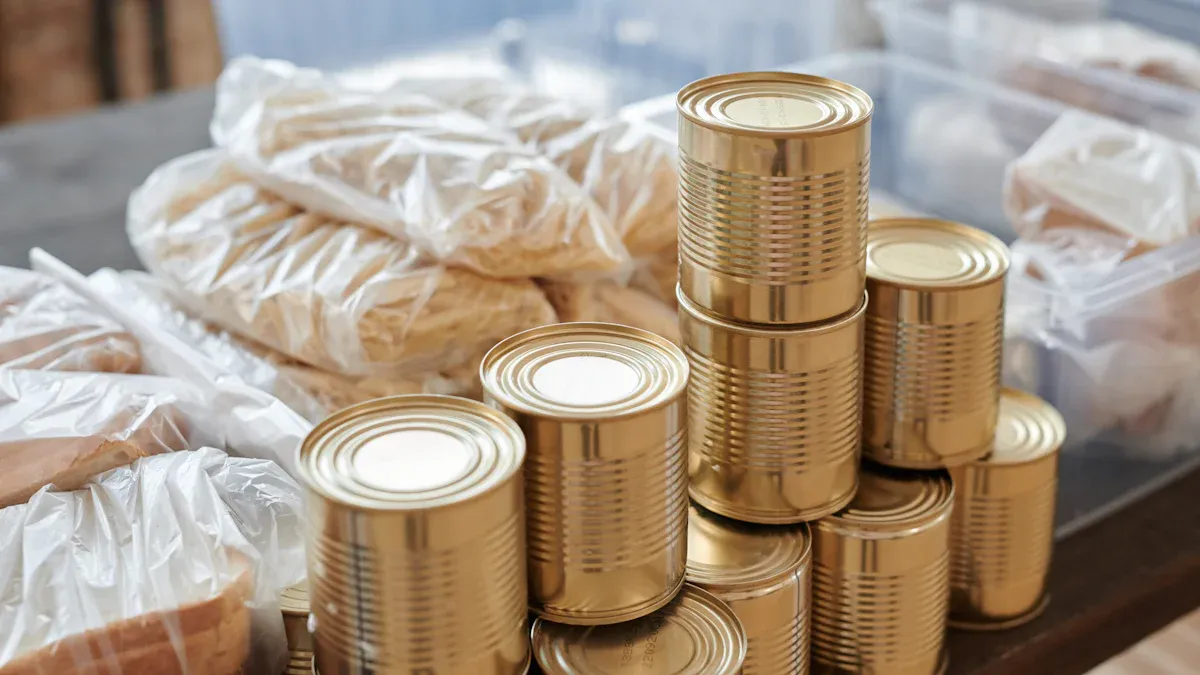
Common Materials Used (e.g., stainless steel, aluminum alloys)
Precision castings used in packaging machines rely on materials like stainless steel and aluminum alloys due to their unique properties. Stainless steel offers high strength and a polished appearance, making it ideal for components that endure heavy loads or require a sleek finish. Aluminum, on the other hand, is lightweight and highly ductile, which makes it perfect for parts where weight reduction is critical.
| Feature | Aluminum | Stainless Steel |
|---|---|---|
| Weight | Lightweight | Heavier than aluminum |
| Corrosion Resistance | Excellent | Good, but requires maintenance |
| Strength | Moderate | High |
| Cost | Less expensive | More expensive |
Aluminum alloys often include elements like magnesium and silicon to enhance strength and corrosion resistance. Stainless steel, composed of iron, chromium, and nickel, resists wear and maintains its integrity under extreme conditions. These materials ensure that precision castings meet the demands of modern packaging machines.
Key Point: Aluminum is ideal for lightweight applications, while stainless steel excels in strength and durability.
Investment Casting Process Explained
The investment casting process creates intricate and precise components for packaging machines. Here's how it works:
- Slurry Dipping: A wax pattern is coated with ceramic slurry to form a mold. Multiple layers ensure strength and detail.
- Dewaxing: The wax is melted and removed, leaving a hollow ceramic shell.
- Molten Metal Casting: Molten metal is poured into the shell, filling every detail.
- Shell Knockout: The ceramic shell is broken away to reveal the cast part.
- Cut Off: Individual parts are separated from the sprue.
- Finishing: Grinding and polishing refine the surface.
- Heat Treatment: Enhances the mechanical properties of the final product.
This process ensures that precision castings meet exact specifications, making them indispensable for packaging machines.
Key Point: Investment casting delivers high-precision components with excellent surface quality.
Quality Control Measures in Precision Casting
Quality control ensures that precision castings meet stringent standards. Manufacturers use advanced techniques like X-ray inspection and dimensional analysis to detect defects. Heat treatment and material testing verify mechanical properties. Regular audits and certifications maintain consistency across production batches.
For example, a cosmetics brand implemented rigorous quality checks for its stainless steel molds. This ensured consistent packaging quality and reduced product defects. By prioritizing quality control, businesses can achieve reliable performance and customer satisfaction.
Key Point: Stringent quality control guarantees the reliability and durability of precision castings.
Real-world example: A cosmetics brand ensured consistent packaging quality by using stainless steel precision-cast molds.
A leading cosmetics brand faced challenges with inconsistent packaging quality. Their existing molds wore out quickly, leading to uneven product seals. After switching to stainless steel precision-cast molds, they noticed a dramatic improvement. The new molds maintained their shape and delivered consistent results, even under high production volumes. This upgrade not only enhanced product quality but also reduced downtime for mold replacements.
Key Point: High-quality precision castings can transform packaging processes by improving consistency and reducing maintenance.
Precision castings are game-changers for packaging machines. They boost efficiency, reliability, and cost-effectiveness, making them essential for modern operations. Industries like food, pharmaceuticals, and cosmetics rely on these components to meet production demands.
Key Insight: Investing in precision castings helps businesses optimize processes and stay ahead in competitive markets.
FAQ
What industries benefit most from precision castings in packaging machines?
Food, beverage, pharmaceutical, and cosmetics industries rely heavily on precision castings to improve efficiency, reduce downtime, and ensure consistent product quality.
Tip: Precision castings are ideal for industries requiring high-speed, automated packaging systems.
How do precision castings reduce maintenance costs?
Their durability minimizes wear and tear, reducing the need for frequent repairs or replacements. This leads to lower maintenance expenses and improved machine uptime.
Key Point: Investing in durable components saves money over time.
Are stainless steel and aluminum alloys the only materials used?
No, other materials like titanium and brass are also used, depending on the application and required properties like strength, weight, or corrosion resistance.
Note: Material choice depends on the specific packaging machine requirements.
Key Takeaway: Precision castings enhance packaging efficiency across industries, reduce maintenance costs, and offer material versatility for diverse applications.






